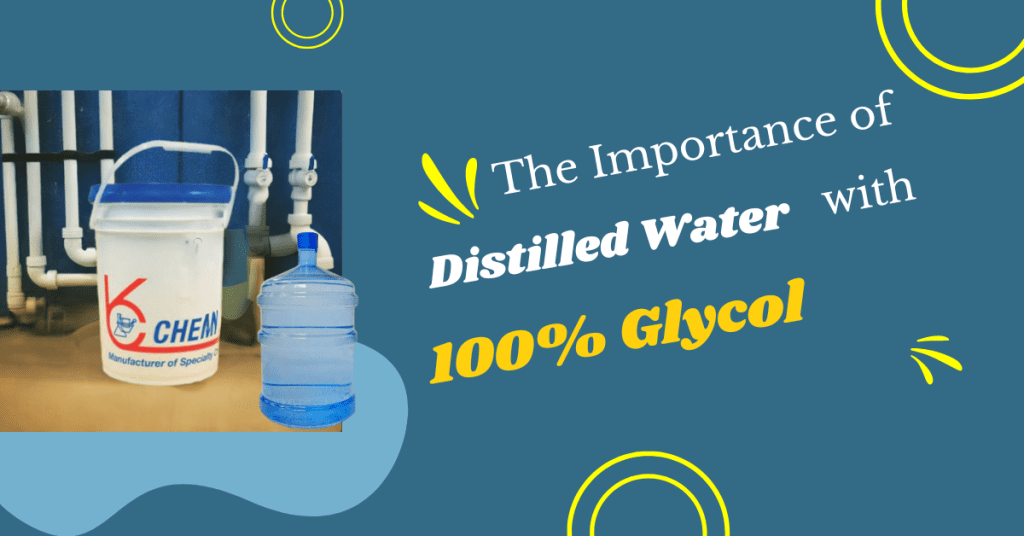The importance of using distilled water when mixing with 100% hydronic heating heat transfer fluid glycol
When it comes to keeping your home warm and cozy during the chilly months, hydronic heating systems stand out as an efficient choice. These systems use heat transfer fluid glycol, which plays a crucial role in maintaining optimal temperatures. However, the effectiveness of using 100% glycol in this process depends greatly on one essential ingredient: distilled water. While it may seem like a minor detail, using anything other than distilled water to mix with 100% glycol can lead to unexpected issues down the line. Let’s dive into why choosing distilled water is essential for your hydronic heating system and how it can enhance performance and longevity.
Understanding Hydronic Heating and Heat Transfer Fluid Glycol
Hydronic heating systems utilize a network of pipes filled with water or glycol to distribute warmth throughout your space. This method is highly efficient, ensuring even heat coverage while minimizing energy consumption.
Heat transfer fluid glycol plays a vital role in this setup. It lowers the freezing point and raises the boiling point of the liquid circulating through the system. This allows for reliable performance across various temperatures.
Glycol not only prevents freezing but also protects against corrosion and scaling within pipes. Using the right mixture optimizes thermal efficiency, enhancing overall system performance.
The interaction between hydronic heating and heat transfer fluid is intricate yet essential for achieving comfort in your home or office. Understanding how these components work together can help you make informed decisions about maintenance and upgrades.
The Risks of Not Using Distilled Water in Hydronic Heating Systems
Using regular tap water in hydronic heating systems can lead to significant issues. One major risk is the presence of minerals and impurities. These substances can create scale buildup, reducing the efficiency of your system over time.
Then there’s corrosion. Tap water often contains chlorine and other chemicals that promote rusting in metal components. This not only affects performance but also shortens the lifespan of pipes and pumps.
Another concern lies with freezing points. Glycol mixed with distilled water maintains a lower freezing temperature compared to mixtures made with tap water. In cold climates, this can be crucial for preventing freeze damage during winter months.
Inconsistent pH levels found in non-distilled waters might lead to unpredictable reactions within the system. Such variability poses risks that compromise both safety and operational reliability over time.
Benefits of Using Distilled Water in Hydronic Heating Systems
Using distilled water when mixing with 100% propolyne glycol in hydronic heating systems offers several key advantages. First and foremost, it significantly reduces mineral buildup. Unlike tap water, which contains various impurities and minerals, distilled water is free from these elements. This cleanliness helps maintain the efficiency of the system.
Another benefit is improved heat transfer efficiency. Distilled water enhances the thermal conductivity of glycol mixtures, allowing for better heat distribution throughout your space. This means faster heating and lower energy costs.
Additionally, using distilled water extends the lifespan of your components. Less scaling leads to fewer blockages and reduced wear on pumps and piping systems.
Maintaining consistent fluid properties becomes easier with distilled water. You achieve more reliable performance over time as you avoid fluctuations caused by variable mineral content found in regular tap water.
Common Misconceptions about Tap Water and Other Alternatives
Many homeowners believe that tap water is a viable option for mixing with glycol in hydronic heating systems. This misconception can lead to serious issues down the road.
Tap water contains minerals and impurities that may cause scale buildup, corrosion, and even can form bacteria within your system. These deposits can hinder heat transfer efficiency and shorten the lifespan of your equipment.
Some people consider bottled water as an alternative, thinking it might be purer than tap water. However, bottled water often still contains dissolved solids that could impact performance negatively.
There’s also a trend toward using rainwater or well water as substitutes. While these sources are natural, they can introduce contaminants into your system that are hard to predict.
Using distilled water ensures consistency and purity, providing optimal conditions for your heat transfer fluid to perform effectively without unwanted side effects.
Conclusion
Using distilled water when mixing with hydronic heating heat transfer fluid glycol is crucial for optimal system performance. The quality of the water directly impacts how effectively your hydronic heating system operates. By opting for distilled water, you minimize the risks associated with mineral buildup and corrosion—issues that can lead to costly repairs down the line.
The benefits of using distilled water extend beyond just improving efficiency; they also promote a longer lifespan for your entire heating system. A proper mix of glycol and distilled water ensures that you achieve the best heat transfer properties while safeguarding against freezing in colder climates.
As myths about tap water persist, it’s essential to stay informed about what truly benefits your system. Regular maintenance combined with high-quality components like distilled water will help keep everything running smoothly.
Investing time and resources into understanding these elements may seem tedious now but will pay off significantly as you enjoy reliable warmth during those chilly months ahead. Whether you’re a homeowner or managing a larger property, prioritizing this aspect of hydronic heating can make all the difference in comfort and efficiency over time.
Use the links below to browse more tips and advice or use the back button on your browser to return to the previous page.

